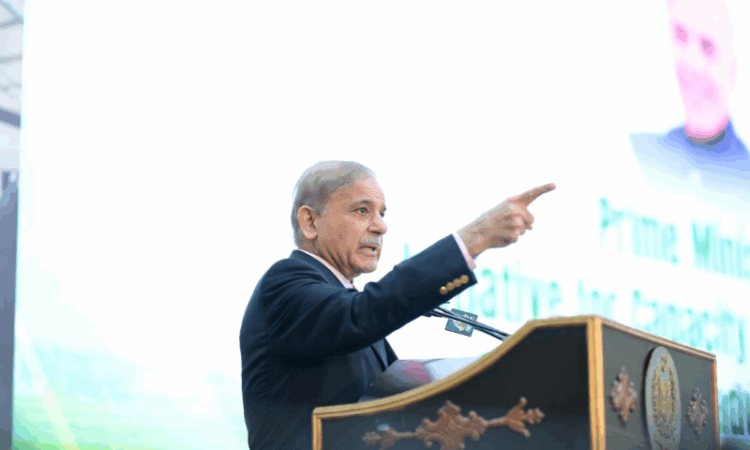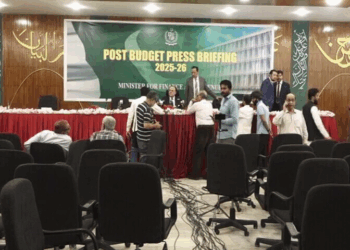Islamabad, April 16, 2025: Prime Minister Shehbaz Sharif on Wednesday credited China for playing a pivotal role in enabling Pakistan’s latest agreement with the International Monetary Fund (IMF), saying the bailout would not have been possible without Beijing’s support.
Speaking at a ceremony marking the launch of a capacity-building initiative for 1,000 Pakistani agriculture graduates in China, the premier underscored the depth of the Pakistan-China friendship and described China as “one of Pakistan’s most sincere friends who has always stood by us in difficult times.”
The remarks come following last month’s successful staff-level agreement between Pakistan and the IMF under the ongoing 37-month, $7 billion Extended Fund Facility (EFF). Upon formal approval by the IMF Executive Board, Pakistan is expected to receive a tranche of approximately $1 billion, bringing total disbursements under the programme to around $2 billion. The board is also expected to consider an additional $2.3 billion in funding over the next six weeks.
Separately, the IMF has also announced a new 28-month climate resilience loan programme worth $1.3 billion, pending board approval.
At the same event, PM Shehbaz launched the agriculture graduate training programme in China, aimed at modernising Pakistan’s farming sector. Under the initiative, 300 graduates will travel to China for three-month training in the first phase. In the second phase, 400 graduates will receive six-month training, followed by 300 more in the final phase with another three-month programme.
The prime minister congratulated the first batch of 300 graduates and urged them to absorb modern agricultural techniques, especially in crop management, climate-resilient seeds, and digital farming, and implement them to increase per-acre yields upon returning.
He recalled being deeply impressed by agricultural research during his last visit to Chinese universities, which inspired the idea to send young Pakistani graduates for training abroad.
The premier expressed regret over the failure of the initiative’s earlier attempts due to a flawed selection process that prioritized overage government employees. He said the current selection was conducted transparently through an online portal, ensuring merit-based inclusion from across Pakistan — including Azad Jammu and Kashmir and Gilgit-Baltistan — with a 10% increased quota for Balochistan.
He also announced plans to offer subsidised loans to trained graduates for agricultural entrepreneurship, particularly focusing on value-added products in fruits and vegetables.
Minister for National Food Security and Research, Rana Tanveer Hussain, said over Rs3 billion is being spent on this initiative to enhance productivity in agriculture and livestock. He expressed confidence that the returning graduates would play a key role in transforming Pakistan’s rural economy.
Chinese Ambassador Jiang Zaidong lauded Pakistan’s macroeconomic improvements over the past year and reaffirmed China’s commitment to strengthening bilateral ties, particularly in agriculture.
He highlighted that under the China-Pakistan Economic Corridor (CPEC), China has invested approximately $35.4 billion in Pakistan, a testament to the enduring strategic partnership between the two countries.








